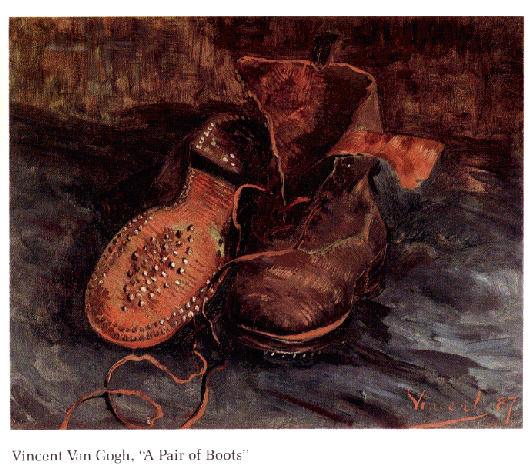
"I will briefly suggest, in this first interpretative option,
that the willed and
violent transformation of a drab peasant object world into the most
glorious materialization of pure color in oil paint is to
be seen as a Utopian gesture, an act of compensation which ends up
producing a whole new Utopian realm of the senses,
or at least of that supreme sense-sight, the visual, the eye-which
it now reconstitutes for us as a semiautonomous space in
its own right, a part of some new division of labor in the body of
capital, some new fragmentation of the emergent
sensorium which replicates the specializations and divisions of capitalist
life at the same time that it seeks in precisely such
fragmentation a desperate Utopian compensation for them.
There is, to be sure, a second reading of Van Gogh which can hardly
be ignored when we gaze at this particular painting,
and that is Heidegger's central analysis in Der Ursprung des Kunstwerkes,
which is organized around the idea that the
work of art emerges within the gap between Earth and World, or what
I would prefer to translate as the meaningless
materiality of the body and nature and the meaning endowment of history
and of the social." (Jameson 67)
